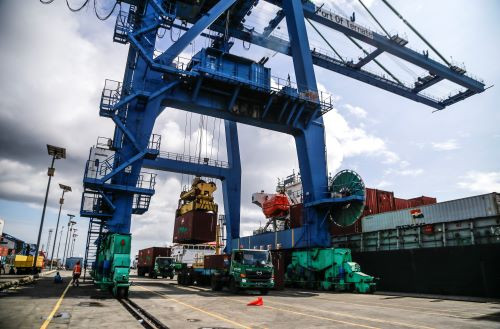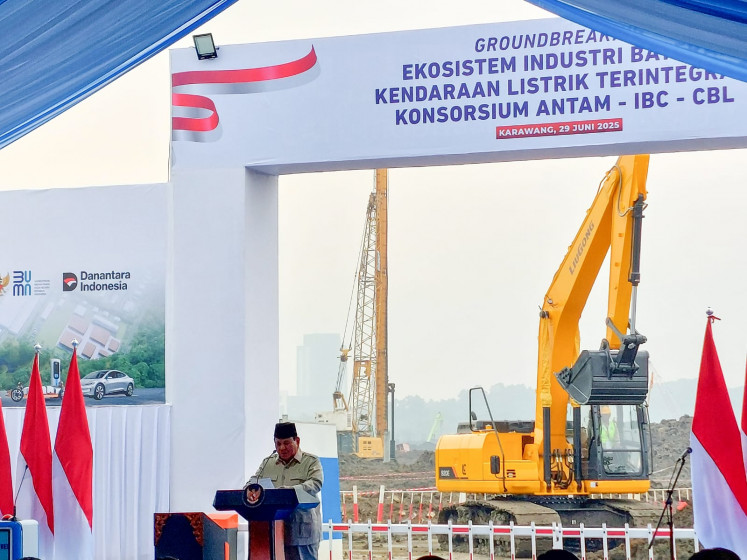Popular Reads
Top Results
Can't find what you're looking for?
View all search resultsPopular Reads
Top Results
Can't find what you're looking for?
View all search resultsCriteo deepens focus to serve RI’s growing digital market
The potential of Indonesia’s digital market and its overall economic growth are driving Criteo toward having a bigger presence in Southeast Asia’s biggest economy
Change text size
Gift Premium Articles
to Anyone

T
he potential of Indonesia’s digital market and its overall economic growth are driving Criteo toward having a bigger presence in Southeast Asia’s biggest economy.
The France-based open internet advertising agency has acknowledged Indonesia as its largest market among nine other countries in its Southeast Asian operational region, which includes six ASEAN countries as well as Bangladesh, Hong Kong and Taiwan. Indonesia is also one of Criteo’s top five countries in the Asia-Pacific region.
Such growth has been encouraging Criteo, which at the moment manages the Indonesian market from its Singapore headquarters, to establish a physical office in Indonesia in the years to come, said Alban Villani, managing director for Southeast Asia and the Pacific region. “[Indonesia] is one of the most dynamic markets in the region, not only in terms of user behavior but also technology,” Villani told The Jakarta Post during Criteo’s annual company meeting in Thailand recently. “There are a lot of investments coming to its super-apps [...] and financial technology is also growing very fast there.”
Criteo, he claimed, had been working with Indonesia’s top digital commerce platforms, including those that have earned unicorn status for being valued at over US$1 billion.
While he refrained from revealing the platforms, various media outlets report that the country currently has four homegrown unicorn startups, namely Go-Jek, Traveloka, Tokopedia and Bukalapak.
“When it comes to online travel and retail, I think our coverage reaches above 90 percent of the top players without hesitation. Indonesia has been the number one market in the [Southeast Asia] region, followed closely by Taiwan and Vietnam,” Villani said.
According to the 2018 annual digital report by We Are Social and Hootsuite, Indonesia had 355.5 million mobile phone subscriptions in 2018, a whopping 133 percent of its total population of 268.2 million.
Internet penetration has also reached 150 million citizens, or 56 percent of the population in the same year, who spent a total of $19.8 billion in various e-commerce categories such as travel, fashion and video games, the report says.
Given Indonesia’s lively digital market, Criteo implemented all of its products directly in the country as soon as they were launched, Villani said, unlike when it first began operations in 2013 and would wait months before customizing its services for Indonesian clients.
One of Criteo’s flagship services in Indonesia was “app retargeting”, a system that enables customers to learn about products or websites they have never even heard of based on their browsing patterns, as well as to persuade them to purchase products they had browsed earlier.
The agency was also slated to launch more new products in Indonesia in the near future, he added. While Villani did not provide further details, he said the service would be directly matched to the domestic market through language customization.
Speaking on the same occasion, Criteo senior director for mobile Theo Leung attributed Indonesia’s exponential digital growth to its high smartphone usage prevalence, with the country having Criteo’s second-highest smartphone penetration in the Asia-Pacific region after India.
The agency’s “State of Cross-Device Commerce 2017” report shows that the mobile share of e-commerce transactions jumped to 34 percent in the fourth quarter of 2016, as opposed to virtually none in the same period the year before.
“Indonesia is as mobile first as it gets,” Leung said. “With that, we have been starting conversations with many kinds of fintech customers, healthcare apps, traditional e-commerce [websites] — basically anything that requires advertisement.”









